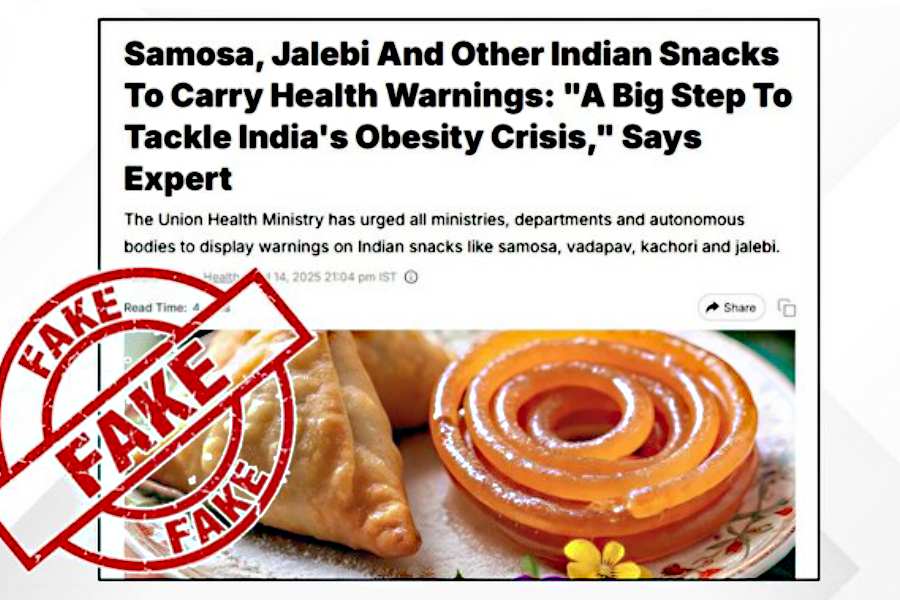West Bengal chief minister Mamata Banerjee on Monday waded into the ongoing row over samosas and jalebis, and said that her government will not implement the Centre’s advisory warning against foods high in sugar and fats.
Her remarks came amid social media uproar over reports that the Union health ministry was targeting India’s street snacks.
“Some media have reported that apparently samosas/jalebis cannot be consumed from now on, based on instructions from the Health Ministry. This is not a notification from the Government of West Bengal. We are not interfering in every matter. We shall not implement this,” Mamata posted on X.
Urging the Centre to respect cultural diversity in food habits, Banerjee added, “I think samosas and jalebis are popular in other states also. People in those states also love these food items. Let us not interfere with people’s food habits.”
Earlier on Tuesday, the Press Information Bureau (PIB) clarified that the Union health ministry has not issued any directive advising vendors to carry warning labels on traditional Indian snacks such as samosas, jalebi, or laddoos.
Responding to media reports suggesting a crackdown on popular street foods, the government’s fact-checking arm posted on X: “The advisory of the Union Health Ministry does not carry any warning labels on food products sold by vendors, and has not been selective towards Indian snacks.”
The PIB described the health ministry’s advisory as a recommendation, meant to encourage citizens to make informed food choices.
It framed the move as a “behavioural nudge to make people aware of hidden fats and excess sugar in all food products, and not specifically to any particular food product.”
While the PIB’s clarification attempted to set the record straight, the underlying health concerns remain pressing. The government advisory said, “is for healthier options and initiatives at workplaces and urges people to make healthier choices to cut down on excess oil and sugar towards healthy eating and living. It does not target India's rich street food culture.”
Reports earlier in the week had claimed that cafeterias and public areas would soon be required to display warning signs about the sugar and fat content in snacks like samosas and jalebis.
Some reports cited Nagpur as the first city to implement the directive.
A government letter attached to the advisory flagged growing concerns over India’s obesity crisis. It projected that by 2050, over 44.9 crore Indians could be overweight or obese, positioning India as the second-largest hub of obesity globally.
Currently, one in five urban adults in India is overweight.
The perception that Indian snacks were being singled out led to social media pushback.
Social media was abuzz with hashtags defending traditional foods, with even Bollywood nutritionists weighing in. “Samosa and jalebi ne aapka kya bigaada hai (what has samosa and jalebis done to you)?” one post read.










